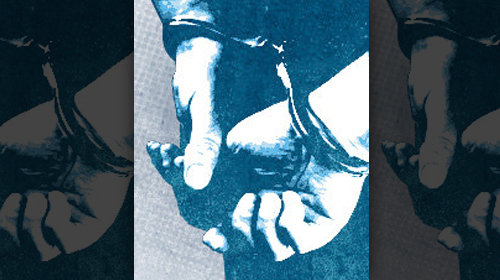
Today, the U.S. has the highest incarceration rate of any country in the world. With over 2.3 million men and women living behind bars, our imprisonment rate is the highest it’s ever been in U.S. history. And yet, our criminal justice system has failed on every count: public safety, fairness and cost-effectiveness. Across the country, the criminal justice reform conversation is heating up. Each week, we feature our some of the most exciting and relevant news in overincarceration discourse that we’ve spotted from the previous week. Check back weekly for our top picks.
Delaware Gov. Markell Signs Bill to Reduce Prison Populations
On Wednesday, Gov. Markell signed SB 226, which implements risk assessments during pretrial hearings that will allow judges to more effectively identify defendants that don’t need to be held in confinement before trial. The bill also allows prisoners and probationers to earn sentence reductions by completing programs that have been proven to reduce recidivism, and requires the state to monitor and study its pretrial practices and treatment programs.
ACLU Calls for Justice Department to Assist Wrongfully Held Prisoners
In a letter sent Tuesday to top Justice Department officials, the ACLU urged immediate action to identify and support the release of a large number of wrongfully imprisoned federal inmates. There are dozens and possibly thousands of people wasting away in federal prison serving unjust sentences due to “felon in possession of a firearm” convictions, mandatory minimum guidelines or “career offender” sentence enhancements, even though their previous convictions were not “predicate felonies” and should not have qualified them for those enhancements. An appeals court decision in U.S. v. Simmons clarified the definition of a “predicate felony offense,” but a year later, many who should have had their sentenced reduced or thrown out are still behind bars.
Mississippi Corrections Chair Calls for Fewer Prisoners
Mississippi budgeted $333 million for corrections last year and still came up $30 million short. That was apparently enough to cause House Corrections Chairman George Flaggs to state publicly that the state needs reduce its prison population, and soon. His suggestions for reform included home detention and electronic monitoring for low-level, nonviolent offenders.
Major Texas County to Adopt Hawaiian Probation Program
Hawaii’s HOPE program, which punishes minor probation violations with swift and certain sanctions rather than prison commitment, has been shown to reduce violations and crime rates among program participants. To see if the program can also be successful in Texas, Tarrant County officials accepted a grant from the Justice Department to implement a three-year pilot program based on the HOPE model.
The Wall Street Journal Highlights Successful New Jersey Reentry Program
We make our communities stronger and safer by helping the 700,000 people who exit the U.S. prison system every year build successful lives. A recent piece in WSJ describes the successes of Newark’s Office of Reentry, which helps former prisoners find work quickly.
Learn more about overincarceration: Sign up for breaking news alerts, follow us on Twitter, and like us on Facebook.

